Iran Receives 5.73 Billion Euros Of Freed Funds In Qatari Banks
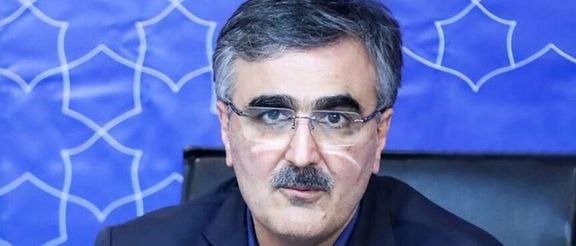
As the world expects a prisoner swap between Iran and the United States on Monday, Iran's central bank announced that the $6 billion released by South Korea was received on Monday.

As the world expects a prisoner swap between Iran and the United States on Monday, Iran's central bank announced that the $6 billion released by South Korea was received on Monday.
Mohammad-Reza Farzin, the chairman of the Central Bank of Iran was quoted by the government's IRNA news website that the funds exchanged into euros totaled 5.73 billion and was transferred to six Iranian held accounts in two Qatari banks.
The United States and Iran announced a deal to release the blocked funds from South Korea in August in exchange for the release of five US citizens held hostage by the Islamic Republic.
Early on Monday, South Korea said it was doing everything to transfer the two full amount that had already been sent to Switzerland to be converted. Later, Iran's foreign ministry said the five prisoners were expected to be released on Monday.
The freed Americans will travel to Qatar and from there will be repatriated. Qatar has acted as mediator in the controversial deal, which has been dubbed by critics as the highest hostage ransom in history, amounting to $1.2 billion per individual.
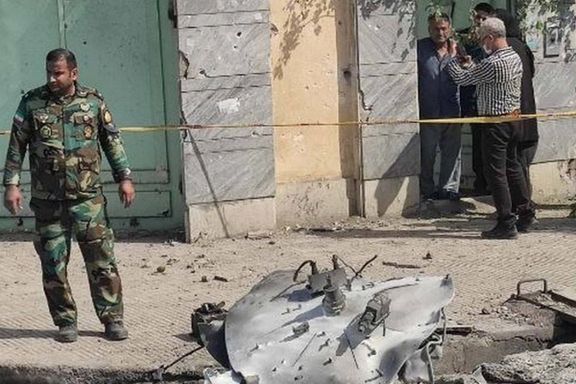
Iranian state media reported the crash of a military object in a residential area in the northern city of Gorgan, which the Defense Ministry calls "a malfunction in a military system."
Defense Ministry spokesperson said Monday, "In the process of testing defense and drone systems in a desert region, one of these systems suffered a technical defect and deviated from its main path."
He confirmed that debris fell in and around the city of Gorgan. No casualties have been reported, but several residential buildings have been damaged, according to videos sent to Iran International.
Various Iranian news outlets have disseminated photographs and videos showing a charred object on a street. The incident has also resulted in damage to nearby shops and vehicles, including shattered windows. In response, the local police have established a secure perimeter around the affected area.
Chief of Police for Golestan province, Mohammad Saeed Fazel Dadgar, claimed in an interview with the semi-official Tasnim news agency that the situation is under control. He additionally noted that some debris from the object had fallen in various parts of the city.
Furthermore, the IRNA state news agency reported that "the sound of the explosion resulting from the drone's impact resonated throughout the entire city."
In February, Iran attributed a drone attack on a military workshop in its central city of Esfahan to Israel. Israel has conducted a series of strikes targeting Iran's nuclear program and other facilities since the collapse of Tehran's 2015 nuclear agreement with the West, marking a protracted covert conflict between the two Middle Eastern adversaries.
While Israeli authorities seldom confirm actions undertaken by the nation's covert military units or its Mossad intelligence agency, Israeli Prime Minister Benjamin Netanyahu has consistently regarded Iran as the most significant threat to his country's security.
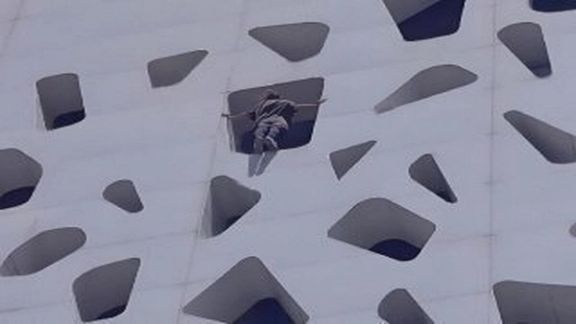
Latest statistics suggest a rise in depression in Iran, particularly among women and young people.
The report by the reformist newspaper Ham-Mihan states that out of every five prescriptions issued, one is for antidepressants or sleep-inducing medications.
The report also links the mental health of Iranians to social issues, including protests.
Following the recent uprisings, numerous experts, including university professors, mental health specialists, and sociologists, expressed concerns about the state of Iran's society. Four mental health associations also voiced their concerns about the mental well-being of citizens in a statement.
The newspaper emphasizes that since last year, many individuals have been contemplating migration as a way out of their current situation.
Earlier this year, Saeed Moeedfar, the president of the Sociological Association, warned that Iran is on the brink of a "severe wave of migration" and described a "terrifying despair" gripping society, particularly its youth and intellectuals.
These predictions of an impending massive migration wave come at a time when estimates suggest that roughly one-tenth of the country's population, equivalent to 8.5 million Iranians, currently live abroad as migrants.
Ham-Mihan, citing mental health experts, notes that anxiety and depression, as two of the most prominent psychological disorders, have manifested in various forms in the past year, including an increased desire to migrate, alcohol consumption, substance abuse, and suicide.

In spite of evidence to the contrary, Iran continues to deny its provision of drones to Russia for its war on Ukraine.
Foreign minister Hossein Amir-Abdollahian said the claims by nations worldwide are "completely baseless', in spite of multiple nations globally issuing sanctions on Iran based on its support of its war on Ukraine.
In a conversation with the Arabic-language newspaper Al-Wefaq published in Tehran, he referred to his recent phone call with the EU's foreign policy chief, Josep Borrell, during which Borrell warned about Russia's use of Iranian drones in the conflict with Ukraine.
Throughout the 18-month Russian attack on Ukraine, both Kiev and US officials repeatedly warned about Iran's military support to Moscow, including the delivery of Iranian-made drones.
However, Amir-Abdollahian stated, "Our stance on the Ukraine issue is entirely clear and transparent, and we have no affiliation with any party in our foreign policy."
On September 3rd, the Ukrainian Air Force reported shooting down 26 Iranian-made combat drones, Shahed-131 and Shahed-136, that Russia had deployed in its assault on southern Odessa.
David Barnea, the Director of Mossad, also expressed Israel's concern last week over Russia selling advanced weaponry to Iran in exchange for Iranian-made drones and other equipment, which could potentially jeopardize security.
The United States, the United Kingdom, the European Union, Australia, and New Zealand have all imposed multiple rounds of sanctions on the Islamic Republic due to its alleged provision of drones to Russia in the Ukraine conflict.

Iran’s Intelligence Minister has reiterated threats against Iran International media network "wherever and whenever deemed necessary."
During a television program on state television, Esmail Khatib said the Iranian government would take action against the network throughout the globe, emphasizing that the Islamic Republic would not refrain from invasive measures against the workers of the channel.
He stated, "Support from various countries will not deter us from taking invasive security measures," claiming that several foreign-based channels have promoted “terrorism,” and Iran International is one of the most important ones.
“We believe that Iran International is a terrorist network, and naturally we deem it our duty and mission to act against them wherever and whenever we deem appropriate,” he said, warning that “no terrorist media will be safe.”
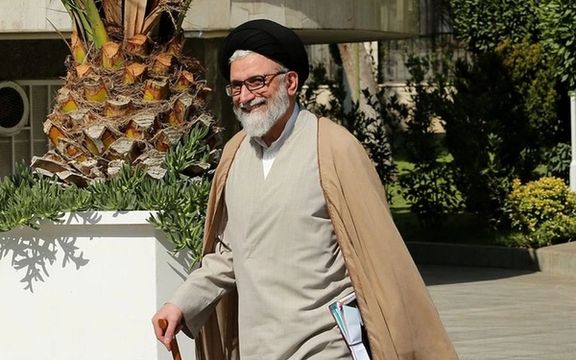
Following a significant escalation in state-backed threats from Iran and advice from the London Metropolitan Police, Iran International TV announced in February that it reluctantly and temporarily closed its London studios and moved broadcasting to Washington DC.
Iran International was warned by authorities in November that its journalists were under threat from Iranian agents and the police took measures to strengthen security around the network’s offices.
The channel's broadcasts have gained special significance since popular anti-regime protests broke out in Iran last September. Iranian officials have repeatedly threatened Iran International and other Persian broadcasters based abroad as the government blocked the Internet to deny the population news and information.
Mahmood Enayat, General Manager of Iran International TV, said in February, "A foreign state has caused such a significant threat to the British public on British soil that we have to move. Let’s be clear this is not just a threat to our TV station but the British Public at large. Even more this is an assault on the values of sovereignty, security and free speech that the UK has always held dear... We refuse to be silenced by these cowardly threats. We will continue to broadcast. We are undeterred.”
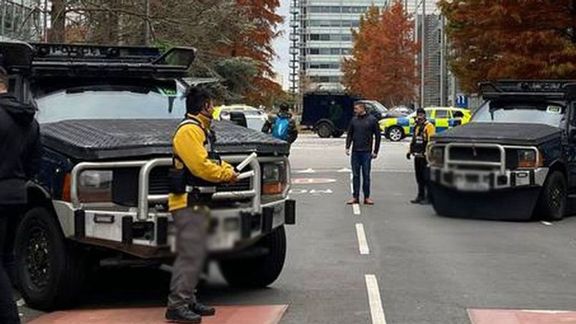
The Iranian regime has blamed foreign-based Persian broadcasters such as BBC Persian and Iran International for “fomenting unrest”, while all media in the country are under tight government control and present protesters as “rioters” and “terrorists”.
The US Department of State, Belgium-based International Federation of Journalists, and Australia’s Media, Entertainment and Arts Alliance are among entities that expressed support for Iran International and stressed the importance of safeguarding journalists' security and press freedom following the relocation of Iran International’s London office.
Regime authorities, including several Revolutionary Guard commanders, have repeatedly issued threats against Iran International and other foreign-based media outlets.
Following the relocation, IRGC Commander-In-Chief Major General Hossein Salami said the threats against the channel’s journalists "show how far the Islamic Revolution's realm of power, field of infiltration and radius of influence has extended."
Amid repeated threats by the Islamic Republic against Iran International’s reporters, the UK government vowed in December to step up protection of London-based Iranian journalists.
British officials also expressed strong support for Iran International. Tom Tugendhat, the UK's Minister of State for Security, has repeatedly condemned Iran's threats against the network. He affirmed that the UK would continue its support for the network, ensuring its activities in a secure environment.
Vowing to step up protection of London-based Iranian journalists, British Foreign Minister James Cleverly said during a session in Parliament in December that the Foreign and Commonwealth Development Office (FCDO), in partnership with the Home Office, had ensured that the Iranian journalists were protected by the British police.
“The UK remains absolutely determined to ensure that Iran does not intimidate people within this country. We will always stand up to the aggression from foreign nations,” he noted, adding, “We will absolutely not tolerate threats, particularly towards journalists who are highlighting what is going on in Iran, or indeed any other individual living in the UK.”
A man was arrested in the vicinity of Iran International’s headquarters in February and charged with a terrorism offence.
In May, Britain’s shadow security minister slammed the threats against journalists covering Iran’s protests. Speaking on World Press Freedom Day, Holly Lynch, the Labour MP for Halifax, said the threats by the Iranian regime include “assassination and kidnap plots against UK residents who are perceived as enemies of Iran owing to their coverage of the protests and the regime’s brutal crackdown”.
The head of Counter Terrorism Policing (CTP), Assistant Commissioner Matt Jukes in London said in February that “At its sharpest, this has involved police and MI5 working together to foil 15 plots since the start of 2022 to either kidnap or even kill British or UK-based individuals perceived as enemies of the regime,” he said.
Despite ongoing threats, Iran International will soon inaugurate a new building in London.
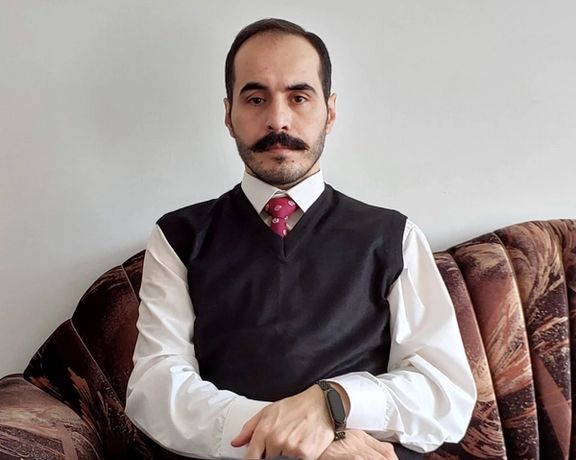
In the face of continued regime oppression, Iranian activists have called for increased resilience and unity, particularly as they mark the anniversary of Mahsa Amini's death.
Prominent Iranian political activist Hossein Ronaghi penned a message, highlighting the unwavering determination and boundless courage of Iranians to bring about change in their country and “dispel the prevailing darkness”.
In his statement, Ronaghi acknowledged the relentless attempts by authorities to "disperse, isolate, and stifle the voices of activists through threats, repression, discord, and various tactics." Nevertheless, he asserted that such efforts have thus far failed and expressed confidence that they will not succeed "in silencing the collective will of the Iranian people."
Ronaghi, 37, has maintained his position as one of the most fearless critics of the Islamic Republic, refusing to leave the country despite facing multiple arrests and periods of detention over the past 13 years. His commitment to advocating for change led to his detainment in 2009 for his involvement in post-election protests, and he was once again arrested in February 2022 for criticizing a bill aimed at restricting internet access in Iran.
Meanwhile, Shirin Ebadi, a prominent Iranian jurist and recipient of the 2003 Nobel Peace Prize for her human rights efforts, particularly in advocating for women, children, and refugees, addressed a gathering of Iranians in Washington during the commemoration of Mahsa Amini's anniversary.
Ebadi underscored the paramount importance of unity, affirming that Iranians would not allow external forces to exploit their internal differences.
She went on to invoke the sacrifices made by the Iranian people throughout history, including significant events such as the Green Movement, Bloody November, and others, urging Iranians not to allow "the memory of such sacrifices to fade away."






